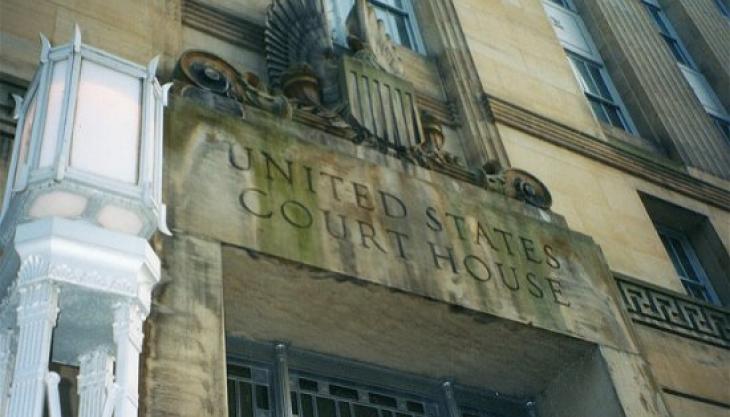5 Types of Assets That Can Complicate Your North Carolina Bankruptcy Case
Submitted by Rachel R on Wed, 12/14/2016 - 9:46am

Disclose all assets to the bankruptcy court
Image Source: Flickr User Zen Skillicorn
North Carolina bankruptcy is a helpful solution to deal with unaffordable debt for many consumers. You should be able to keep a reasonable amount of assets that can be protected using bankruptcy exemptions. But there are some types of assets that require special consideration. Here is a look at five assets that might be treated differently in bankruptcy and what you need to know before you file.
#1 Assets You Own Jointly
If you own property along with someone else, your share of the property must be considered part of your assets in your bankruptcy case. For instance, if you own a home with your spouse and you’re filing bankruptcy together, you can both take advantage of exemptions. This is more complex if you own a home with your spouse and only one of you is filing bankruptcy. Your share of the equity can be protected using bankruptcy exemptions, but if it exceeds the exemption, there can be complications.
#2 Life Insurance and Inherited Assets
If you inherit something just before or while you’re in the bankruptcy process, whether it’s tangible assets, cash, or life insurance proceeds, it must be included as part of your petition and is considered part of your assets in the bankruptcy case. But what further complicates things is if you inherit, or discover you will inherit, something within six months after you file bankruptcy, you must notify your bankruptcy attorney because it will be considered part of the bankruptcy assets.
#3 Future Rent and Profit
If you own property that generates income, even if the property itself is worth nothing, it might be considered differently than other assets with no equity. If your vehicle has no or little equity, it’s no big deal. But if you own a second home that has no equity but that you might rent, it could be treated differently because of the income potential. Likewise, if you own something that produces a product that could generate profit, it might be treated differently.
#4 Assets That Were Transferred
Some people try to game the bankruptcy system and hide assets or sell them at a low price to friends or family to keep them out of their bankruptcy case. The only time it’s proper to sell an asset before, during, or after bankruptcy is if it was purchased for fair market price or exchange. Sale of assets in the bankruptcy period must be reported to the bankruptcy court. If you sell or give away assets with the intent to defraud the court, you can wind up in big trouble. Honesty is the best policy.
#5 Assets That Come Out of Divorce
If you divorce just as you file bankruptcy, or within six months after you file, and gain assets from the divorce, this must be reported to your bankruptcy attorney and will be considered part of your estate for purposes of the case. Even if you don’t get the assets, but the divorce decree entitles you to receive an asset at a later date, it must be disclosed. In some cases, it’s better to file bankruptcy first, resolve that, wait it out for six months, and then file for divorce. Divorce is often easier without joint debt.
In most North Carolina bankruptcy cases, you can keep what you own so long as you’re not sitting on an excessive pile of assets. Bankruptcy exemptions allow you to shield $35k of equity in your home and $70k if you file jointly. There are also exemptions to shield equity in your car, and your retirement accounts are fully protected. To find out more, contact a North Carolina bankruptcy attorney to schedule a consultation about debt relief.
Contact the Law Offices of John T. Orcutt to schedule a free North Carolina bankruptcy consultation. Call +1-833-627-0115 now for an appointment at one of our locations in Raleigh, Durham, Fayetteville, Wilson, Greensboro or Wilmington.
Debts Hurt! Got debt? Need help? Get started below!
Serving All of North Carolina
- Bankruptcy Attorneys Raleigh NC (North)
- Bankruptcy Attorney Fayetteville NC
- Bankruptcy Attorney Durham NC
- Bankruptcy Attorneys Wilson NC
- Bankruptcy Attorneys Greensboro NC
- Bankruptcy Attorneys Southport NC
- Bankruptcy Attorneys Wilmington NC
Bankruptcy Attorneys Raleigh NC (North)
6616 Six Forks Rd #203 Raleigh, NC 27615 North Carolina
Tel: (919) 847-9750

Bankruptcy Attorney Fayetteville NC
2711 Breezewood Ave Fayetteville, NC 28303 North Carolina
Tel: (910) 323-2972

Bankruptcy Attorney Durham NC
1738 Hillandale Rd Suite D Durham, NC 27705 North Carolina
Tel: (919) 286-1695


Bankruptcy Attorneys Greensboro NC
2100 W Cornwallis Dr. STE O Greensboro, NC 27408 North Carolina
Tel: (336) 542-5993

Bankruptcy Attorneys Southport NC
116 N Howe St. Suite A Southport, NC 28461 North Carolina
Tel: (910) 218-8682

Bankruptcy Attorneys Wilmington NC
116 N. Howe Street, Suite A Southport, NC 28461 North Carolina
Tel: (910) 447-2987
